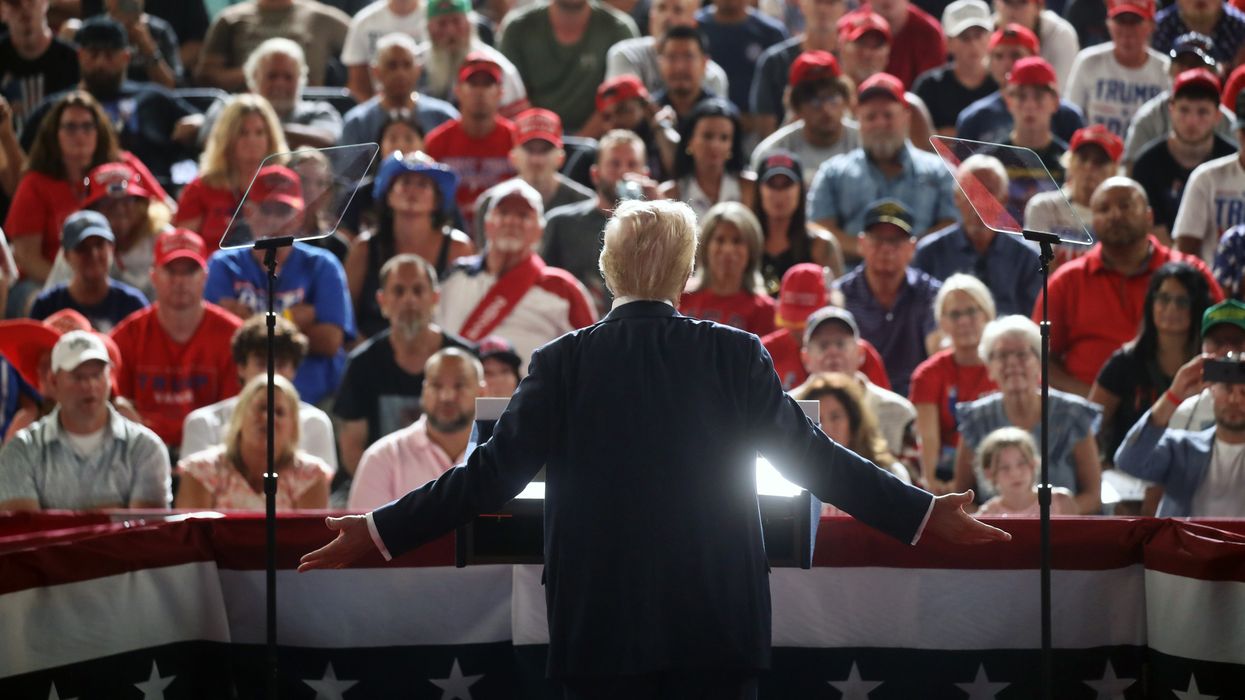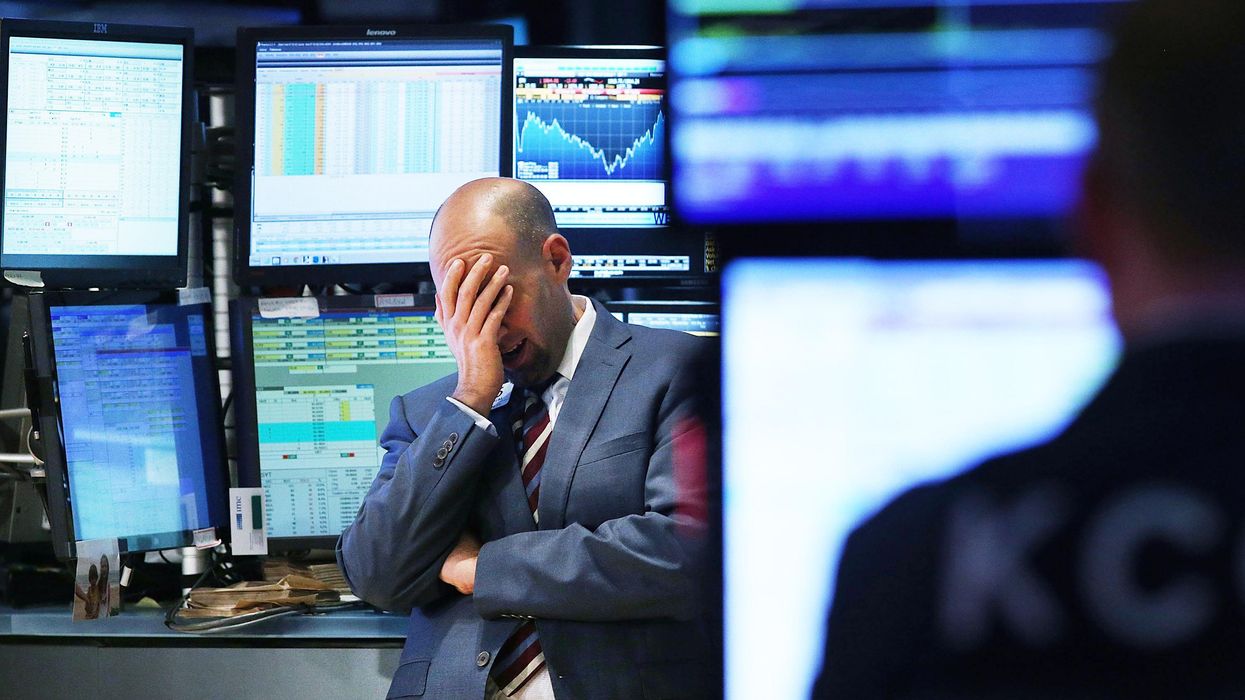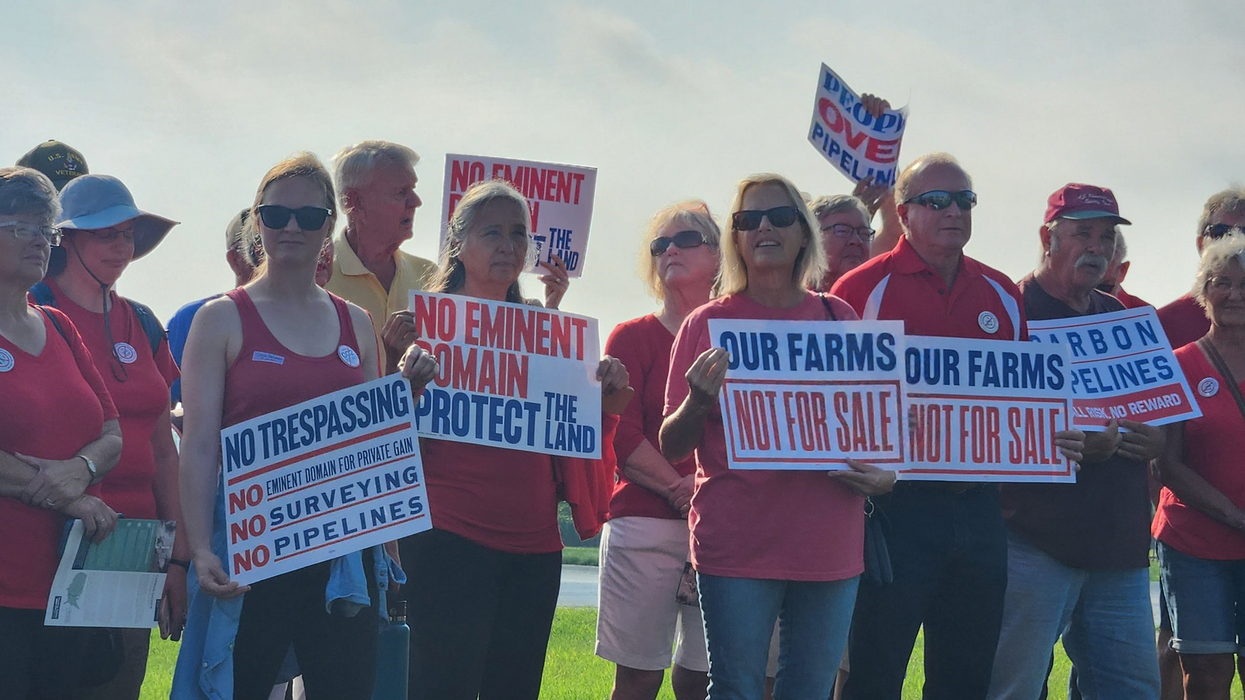Trump Gives 'Unbelievably Bad' Answer When Voter Asks How He'll Help Working People
"'Drill, baby drill' doesn't help people with housing needs," said one economic justice advocate. "We need living wages and investment in affordable housing."
Given a chance on Wednesday to speak directly to a voter about how his policies would materially help working families to afford housing and other essentials, Republican presidential candidate Donald Trump instead repeated some of his favorite evidence-free attack lines—leaving the voter mainly with promises to "drill, baby, drill" and to get China "to behave properly."
Featured in a "Fox & Friends" segment on Fox News in which the former president called in, the vote explained at the Sturgis Motorcycle Rally in South Dakota that he has regularly been helping five of his eight children financially, as they are "struggling" to afford necessities.
"How are you going to make the economy—not just the food and electricity—but bring down the rent prices, the housing prices, so that these kids can survive without their parents' help?" said the voter.
The former president didn't address the voter directly, instead telling a Fox correspondent that he likely had the support of "at least 99, perhaps 100%" of the people at the motorcycle event, before launching into a meandering reply to the question.
"We're going to drill, baby, drill, we're gonna bring down the cost of energy," he said. "Energy's what caused the worst inflation, I think, in the history of our country. Food prices are up 50%, sometimes more. You look at bacon. Bacon has quadrupled. You can't order bacon, you can't order anything. We're living horribly."
In the last year of Trump's presidency, a pound of bacon cost $5.83; the price is now $6.77 and has gone down over the last two years.
Trump's next claim, that "we have the worst inflation we've probably ever had in our country," was also baseless, with inflation down to 3% in June, following a surge in 2022 that resulted from the coronavirus pandemic.
After telling the voter that he would ensure China and other countries were "treating us good"—and saying nothing about introducing programs to bring down rent prices, the subject of the man's question, the former president said the voter had been "in great shape" during his presidency and exaggerated the current price of gasoline, which has also trended downward since 2021.
"Answering with 'drill baby drill' to a concerned supporter asking about rising rent prices is about as asinine as it gets," said Derek Marshall, an organizer and progressive congressional candidate in California's 3rd District. "Americans deserve better!"
Jonathan Wilson-Hatrgrove, assistant director of the Yale Center for Public Theology & Public Policy, said Trump's response illustrated how the former president and his allies "exploit the pain of white poverty, but they have no coherent answer when asked what they will do to fix it."
Wilson-Hartgrove contrasted Trump's rambling reply with a similar question that was asked of then-presidential candidate Kamala Harris in 2020 at the Poor People's Campaign Presidential Forum.
A young white woman from Washington State asked @KamalaHarris the same question when she ran in 2020. Every voter needs to hear the contrast b/w these two visions of the economy. pic.twitter.com/Ws9OIYdn3P
— Jonathan Wilson-Hartgrove (@wilsonhartgrove) August 8, 2024
"I am proposing what I call the Rent Relief Act, so for renters who are paying more than 30% of their income in rent plus utilities, they will receive a tax credit, so that they can be able to get through the month paying rent," said Harris at the time. "I also connect it to the issue of what we need to do around equal pay, I connect it to the issue of what we need to do to raise the minimum wage."
Voters, said Wilson-Hartgrove, should "hear the contrast between these two visions of the economy."
On Tuesday in Atlanta, Harris, now the Democratic presidential nominee following President Joe Biden's decision to step aside in the 2024 race, told a crowd of supporters that she plans to "take on corporate landlords and cap unfair rent increases."
The Biden administration has also proposed limiting rent increases to 5% nationwide for landlords who own more than 50 units, covering over 20 million units across the country, and exempting yet-to-be-built units in order to encourage the construction of new housing.
Trump's response to the frustrated voter's question about housing costs, said Rev. Dr. William J. Barber II, co-chair of the Poor People's Campaign, was to lie "about the economy he inherited from the Obama/Biden administration, then ran into the ground before his response to Covid made things even worse."
"'Drill, baby drill' doesn't help people with housing needs," said Barber. "We need living wages and investment in affordable housing."


